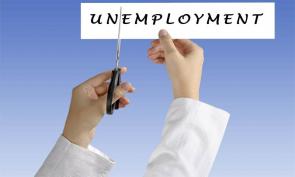
|
| Harrison Barnes |
The following are my suggestions for the best way to prepare for a job search and interviews:
1. Know you are always being watched, observed and judged
When I was in high school I remember that one of the best looking girls in my school was known to be a prude and someone who would date boys but never let anything all that exciting happen. She was also a star athlete and a student counsel leader and a very respected student. My parents were divorced and lived about an hour apart. I lived with my father. The funny thing is that this same girl also had parents who were divorced and spent a lot of time in one city visiting a parent. The funny thing about this girl was she had the exact opposite reputation in the city where she did not live full time. Her strategy it seemed, like the strategy of many, was to have two separate personas. She knew that if she behaved one way in her school and around people there she would experience fall out. She also knew that by keeping her "wild side" in another town this would not affect her directly in her own back yard.
See also:
In life we are always being observed. We are being observed in our communities. We are being observed in our jobs. We are being observed by our peers. We are being observed by our superiors. There are a lot of people out there who understand that. The smart woman discussed above certainly understood that (albeit, in a different context).
When I went to look for a job in Detroit, despite the fact that I had not spent time in the city since high school, I already knew which firms I would likely get jobs in and which ones I likely would not. This had nothing to do with the prestige of the firm-it had to do with the people inside the firms. I knew that I had been close to certain people growing up and their parents like me. I also knew that I had not been close with others and had made some enemies along the way. Sure enough, when I started applying for jobs in Detroit I was preceded by my past. The Detroit legal community is small enough that most people know one another.
In everything you do in the public arena you are likely being observed, watched and judged. The people you need today will likely have some impact over events that may happen to you tomorrow. It is as simple as that. Like the woman discussed above, you need to do everything you can to maintain a strong public face at all costs.
One thing about interviewing in law firms is that there will likely almost always be someone there you have known from a time before. That person will likely have a say in what is happening to you in your new position. Be aware of this and you will be preparing for interviews every second of every day.
2. Remember that the best lawyers can spot other good lawyers and you cannot "fake it"-you are always preparing for interviews just by doing a good job with your current work
There are many people out there who go to work in jobs and for whatever reason are not challenged. Most often the people who claim they are not challenged are the same people who go out of the way to not challenge themselves. We all know the type of person who does not challenge themselves in the job. These are the sorts of people always looking for shortcuts and other methods to do as little work as possible. I have never understood this sort of person-but they are there. This sort of person is also the same one who is likely to be very defensive when asked about something they do not know but think they should know-"oh, I already know that!" they will say.
When you are good at something and really doing your job you have the tendency to get "immersed" in your subject matter. Over time the subject matter and its intricacies and innuendos becomes almost second nature to the good student. You also become more astute and a level or presumed understanding emerges between people who understand the subject matter well. Little tidbits and other bits of understanding emerge. Two people who are very good at something share a similar understanding.
When you are interviewing with a truly excellent lawyer, they will also be able to tell if you share this level of understanding. If you are a slacker and not a hard worker, or someone who does not consistently challenge their mind, they will see right through this. This level of understanding is particularly important at the higher levels. You need to always be working hard and doing good legal work even when you may not want to make long-term plans to be at your current firm. This is essential.
3. You need to go into your job with a sincere and 100% desire to make it work and switch jobs infrequently-if at all
Until the 1980s, the majority of workers in America and in law firms rarely changed jobs-if at all. One of the major changes that happened was when the Japanese started importing cheaper and better cars into the United States. American car makers (a major industry at the time) could no longer afford to be as loyal to their employees and mass firings and layoffs became increasingly commonplace. Furthermore, pensions were fairly rapidly phased out at most companies in favor of 401ks-because employees began to be more "portable" in their jobs. Much of the changes that were occurring in corporate America soon found themselves into law firms and other legal hiring organizations.
Despite that fact that attorneys can switch jobs at a whim in the current economic climate, switch jobs is not always the smartest thing to do. Young lawyers (especially) like to feel as if they are in control and more valued by their employers than they value them. In addition, young attorneys are likely to move for a slight bump in salary, an attorney in the firm they do not like, or some other trivial sort of factor.
These are not good reasons to move. In fact, there are few good reasons to leave most legal employers. The best reason and the only reason is if there is something inside your current firm that is so endemic to the firm and so pervasive that unless you leave your career will never go forward. These factors also should be near 100% beyond your control. When you join an employer it is much like getting married. If you show a lot of commitment to your current employer you will be respected if you have to leave due to factors outside of your control.
- See Interviewing Tips for more information
The reason all of this is important is because the person interviewing you wants to trust you. If the person or organization interviewing you does not trust you and believes you may leave for a trivial reason then they are will be unlikely to hire you. If your reason for leaving is sound and the next firm who hires you believes you are likely to remain on board in the face of adversity then they are more likely to hire you. People want to have people with staying power in their organizations. No organization is perfect and all organizations go through ups and downs.
Conclusions
In everything you do-both inside and outside of work-you are always preparing for your job search and interviews. You need to remember that the time to prepare for interviews and a job search is before you ever know you will need to prepare. Being a good attorney and a job searcher is something that takes the same amount of time and effort to achieve.
End your job search here!
Learn why attorneys usually fail law firm phone-screening interviews in this article:
Click here to contact Harrison
About Harrison Barnes
Harrison Barnes is a prominent figure in the legal placement industry, known for his expertise in attorney placements and his extensive knowledge of the legal profession.
With over 25 years of experience, he has established himself as a leading voice in the field and has helped thousands of lawyers and law students find their ideal career paths.
Barnes is a former federal law clerk and associate at Quinn Emanuel and a graduate of the University of Chicago College and the University of Virginia Law School. He was a Rhodes Scholar Finalist at the University of Chicago and a member of the University of Virginia Law Review. Early in his legal career, he enrolled in Stanford Business School but dropped out because he missed legal recruiting too much.
Barnes' approach to the legal industry is rooted in his commitment to helping lawyers achieve their full potential. He believes that the key to success in the legal profession is to be proactive, persistent, and disciplined in one's approach to work and life. He encourages lawyers to take ownership of their careers and to focus on developing their skills and expertise in a way that aligns with their passions and interests.
One of how Barnes provides support to lawyers is through his writing. On his blog, HarrisonBarnes.com, and BCGSearch.com, he regularly shares his insights and advice on a range of topics related to the legal profession. Through his writing, he aims to empower lawyers to control their careers and make informed decisions about their professional development.
One of Barnes's fundamental philosophies in his writing is the importance of networking. He believes that networking is a critical component of career success and that it is essential for lawyers to establish relationships with others in their field. He encourages lawyers to attend events, join organizations, and connect with others in the legal community to build their professional networks.
Another central theme in Barnes' writing is the importance of personal and professional development. He believes that lawyers should continuously strive to improve themselves and develop their skills to succeed in their careers. He encourages lawyers to pursue ongoing education and training actively, read widely, and seek new opportunities for growth and development.
In addition to his work in the legal industry, Barnes is also a fitness and lifestyle enthusiast. He sees fitness and wellness as integral to his personal and professional development and encourages others to adopt a similar mindset. He starts his day at 4:00 am and dedicates several daily hours to running, weightlifting, and pursuing spiritual disciplines.
Finally, Barnes is a strong advocate for community service and giving back. He volunteers for the University of Chicago, where he is the former area chair of Los Angeles for the University of Chicago Admissions Office. He also serves as the President of the Young Presidents Organization's Century City Los Angeles Chapter, where he works to support and connect young business leaders.
In conclusion, Harrison Barnes is a visionary legal industry leader committed to helping lawyers achieve their full potential. Through his work at BCG Attorney Search, writing, and community involvement, he empowers lawyers to take control of their careers, develop their skills continuously, and lead fulfilling and successful lives. His philosophy of being proactive, persistent, and disciplined, combined with his focus on personal and professional development, makes him a valuable resource for anyone looking to succeed in the legal profession.
About BCG Attorney Search
BCG Attorney Search matches attorneys and law firms with unparalleled expertise and drive, while achieving results. Known globally for its success in locating and placing attorneys in law firms of all sizes, BCG Attorney Search has placed thousands of attorneys in law firms in thousands of different law firms around the country. Unlike other legal placement firms, BCG Attorney Search brings massive resources of over 150 employees to its placement efforts locating positions and opportunities its competitors simply cannot. Every legal recruiter at BCG Attorney Search is a former successful attorney who attended a top law school, worked in top law firms and brought massive drive and commitment to their work. BCG Attorney Search legal recruiters take your legal career seriously and understand attorneys. For more information, please visit www.BCGSearch.com.
Harrison Barnes does a weekly free webinar with live Q&A for attorneys and law students each Wednesday at 10:00 am PST. You can attend anonymously and ask questions about your career, this article, or any other legal career-related topics. You can sign up for the weekly webinar here: Register on Zoom
Harrison also does a weekly free webinar with live Q&A for law firms, companies, and others who hire attorneys each Wednesday at 10:00 am PST. You can sign up for the weekly webinar here: Register on Zoom
You can browse a list of past webinars here: Webinar Replays
You can also listen to Harrison Barnes Podcasts here: Attorney Career Advice Podcasts
You can also read Harrison Barnes' articles and books here: Harrison's Perspectives
Harrison Barnes is the legal profession's mentor and may be the only person in your legal career who will tell you why you are not reaching your full potential and what you really need to do to grow as an attorney--regardless of how much it hurts. If you prefer truth to stagnation, growth to comfort, and actionable ideas instead of fluffy concepts, you and Harrison will get along just fine. If, however, you want to stay where you are, talk about your past successes, and feel comfortable, Harrison is not for you.
Truly great mentors are like parents, doctors, therapists, spiritual figures, and others because in order to help you they need to expose you to pain and expose your weaknesses. But suppose you act on the advice and pain created by a mentor. In that case, you will become better: a better attorney, better employees, a better boss, know where you are going, and appreciate where you have been--you will hopefully also become a happier and better person. As you learn from Harrison, he hopes he will become your mentor.
To read more career and life advice articles visit Harrison's personal blog.





